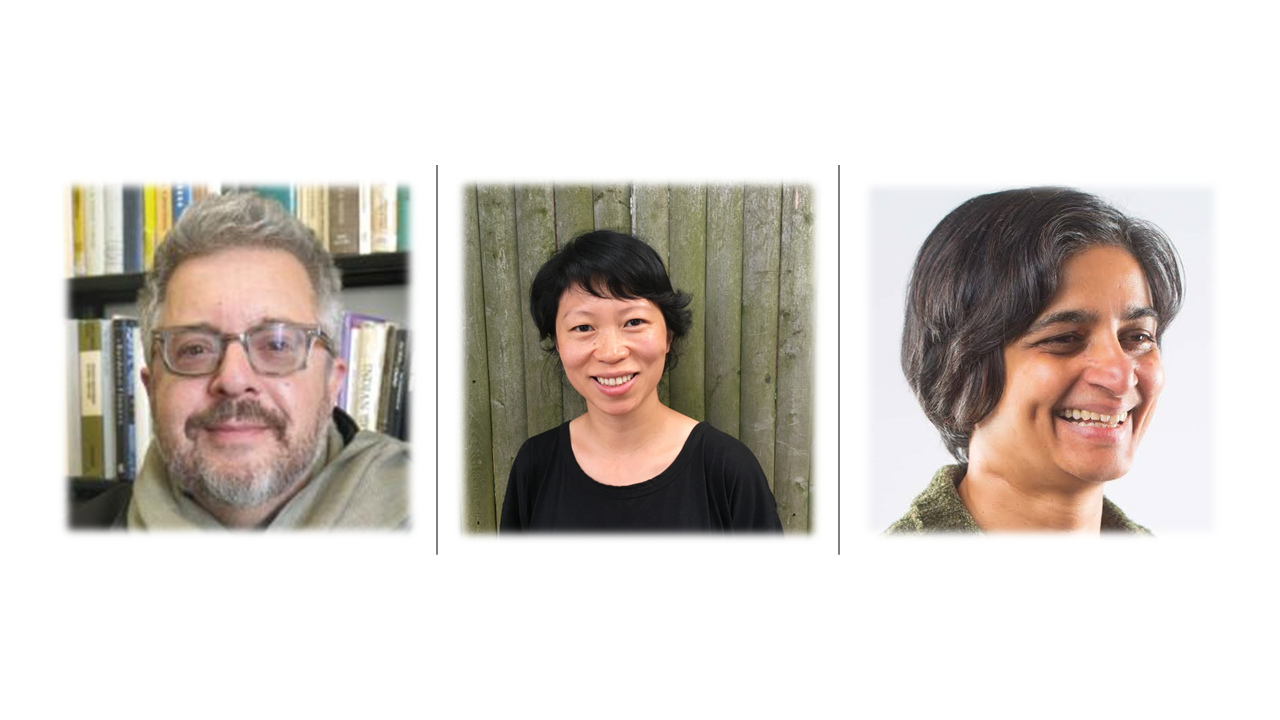SFIS Spring 2025 Symposium

Event description
- Free
- Inclusion
- Open to the public
- Science
- Sustainability
Global Perspectives on Science and Technology
Banu Subramaniam
Banu Subramaniam is the Luella LaMer Professor of Women’s and Gender Studies at Wellesley College. Trained as a plant evolutionary biologist, Banu engages the feminist studies of science in the practices of experimental biology and is author of Botany of Empire (2024), Holy Science (2019) and Ghost Stories for Darwin (2016).
10-11:30 a.m.
Queering Global Flora: Plant Worlds and the Afterlives of Empire with Banu Subramaniam
How have histories of colonialism and their foundational language of gender, race, sexuality, and nation shaped the language, terminology, and theories of the modern plant sciences? How and why do botanical theories remain grounded in the violence of their colonial pasts? In wrestling with these difficult origins, I develop the concept of migrant ecologies to retheorize plant migration and reproductive biology. I explore new biological frameworks that harness the power of feminist thought in order to reimagine and reinvigorate our love of plants.
Amy Zhang
Amy Zhang is an Assistant Professor of Anthropology at New York University. Her work is interested in how the deployment of environmental technologies intersects with ongoing dynamics of urbanization and development, and how citizens come to intervene in the state’s techno-scientific projects. Her articles have been featured in Science, Technology & Human Value, Current Anthropology, Cultural Anthropology, China Perspectives, Made in China, LIMN, e-flux among others. She is also the author of Circular Ecologies: Environmentalism and Waste Politics in Urban China (Stanford University Press, 2024
11:45 a.m.-1 p.m.
Circular Ecologies: Waste’s Techno-politics in Urban China
Starting in the early 2000s, Chinese policymakers came to see waste management as an object of environmental governance central to the creation of “modern” cities, and experimented with the circular economy, in which technology and policy could convert all forms of waste back into resource. This talk traces the impact of the deployment of WTE incinerators in Guangzhou, as the preferred technological solution for realizing the circular economy. The building of new WTE incinerators on the city’s peri-urban edge, elicited a diverse range of techno-scientific engagement by both villagers and the middle-class. Experiments with the circular economy facilitated not only displacement but new forms of techno-scientific articulations and engagements between rural and urban dwellers.
Lawrence Mark Cohen
Lawrence Cohen is a professor in the departments of Anthropology and of South and Southeast Asian Studies at UC Berkeley, and co-director of the Medical Anthropology Program there. His research has centered on intersections in medicine, politics, science, and religion: he has written on old age, dementia, and the government of families; on sexuality, gender, AIDS, and the transformations of economic liberalization; on surgery and the regulation of organ transplantation; on Covid, secondary infections, and contact tracing software; and on biometric governance and securitization. In addition to anthropology he has trained in the history of religion and in geriatric medicine.
2-3:30 p.m.
The Engineering of Poverty: Security and the science and culture of the duplicate in contemporary India
In the late 1990s and 2000s, many in Indian government and civil society worried that the country was failing to meet the challenges of a more globalized world and proposed a technological solution, using the affordance of biometrics and big data to reduce poverty, limit corruption, and prevent terrorism. Two versions of a national biometric ID were created, one (called the Unique Identification Authority, or UIDAI) centered on economic development and the second (called the National Population Registry) on border security. Each created a distinctive mode of citizenship: the design of the first of these, built by a public-private partnership centered on IT expertise, came to dominate, its engineers in effect capturing key functions of the state. UIDAI’s design centered on a basic feature of database efficiency and growth, a process termed “deduplication.” India’s problem, in a word, was too many fake (or “duplicate”) claims on resources. UIDAI was met with cogent criticism but proved popular, and its design became a commodity, a model for governance globally. This talk reviews the history and current dynamics of the engineering state, with a focus on how persons negotiate the accusation of being a duplicate and variably experience the promise of national de-duplication.
3:45-5 p.m.
Roundtable on STS Futures
Banu Subramaniam, Amy Zhang, Lawrence Cohen, Lindsay Smith, Itty Abraham
Additional information
Event contact
Monday, February 3, 2025
9:30 a.m. to 5:00 p.m.

